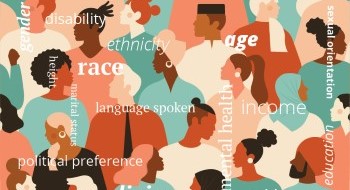
"Prejudice is a great time saver. You can form opinions without having to get the facts." - E.B. White
How to have a conversation about Unconscious Bias
- Understand the Binary Mindset: Traditionally, racism is represented as a binary - you're either a racist or you're not. However, it's possible to act with good intentions and still perpetuate systemic bias. Ask the audience to resign from taking a position and focus on listening to the discomfort that these conversations may stir up.
- Grant permission to yourself and others to learn: Expect to make mistakes. Things will likely not go right on the first try, but make a commitment to learn what you can from these conversations and try again.
- Stay in the discomfort: In order to truly make progress, these conversations require periods of "sustained disequilibrium". Focus on encouraging the audience to work through the discomfort rather than reassurance.
- Do not rely on other's to do the dirty work: Anti-racist work often involves an extra burden of explaining racism to white audiences who are simultaneously denying the lived experiences of people of color. Recognize the labor this involves and either compensate it or make sure this burden does not fall on staff of color completely.
- Work towards an actionable goal: Conversations centered on implicit/unconscious bias should focus on the structural and organizational issues surrounding how society views race rather than an individual's thoughts or behaviors. To be effective, conversations should transition over time from the individual's experience of bias to a list of actionable items that can be taken by the audience or institution.
- One session will not cut it: Meaningful progress at the structural and institutional levels takes longer than a few days of implicit bias training. Plan to have a series of multiple, on-going workshops where audiences can give feedback, get resources, and practice the work required to make effective change.